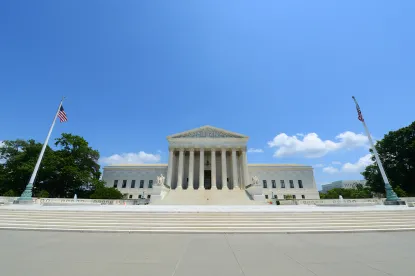On December 6, the U.S. Supreme Court heard arguments in United States, ex rel. Polansky v. Executive Health Resources, Inc. The case concerns the issue of whether or not the U.S. government can dismiss False Claim Act whistleblowers’ qui tam suits after initially declining to intervene in them. According to whistleblower attorneys, the case has tremendous implications for the efficacy of the False Claims Act.
“All of the Justices’ questioning at oral argument appear to be deferential to the government’s position that the DOJ can dismiss a case that it did not initially intervene in,” said whistleblower attorney David Colapinto, a founding partner at the qui tam firm Kohn, Kohn & Colapinto. “However, the Court is struggling with what standard, if any, should be applied by courts at a hearing on the government’s motion to dismiss a whistleblower’s False Claims Act suit, years after the government has declined to intervene in the case.”
“During the oral argument the government took the position that it’s just ‘too bad’ if the whistleblower has spent ‘a ton of money’ and years litigating the False Claims Act suit. That was brushed off as a reasonable risk that every whistleblower takes when filing suit,” continued Colapinto, who has represented False Claims Act whistleblowers since the 1980s. “This turns the False Claims Act statute on its head. Congress created the right of a whistleblower to bring these suits without the government to protect the taxpayers.”
“If the Supreme Court is prepared to extend the government’s right to intervene to permit it to dismiss a whistleblower’s False Claims Act qui tam case for virtually any reason under the sun, then Congress will have to fix the statute to create reasonable limits respecting the right of the whistleblower to proceed with the action if the government declines to intervene,” Colapinto concluded.
Under the False Claims Act, individual whistleblowers may bring qui tam lawsuits against fraudsters on behalf of the U.S. government. The Department of Justice (DOJ) has the opportunity to intervene in qui tam suits and take over the proceeding. However, when DOJ declines to intervene in and litigate the qui tam case the statute permits the whistleblower to pursue the case in the name of the United States and to litigate the case against the defendant in federal court.
The Polansky case stems from a qui tam suit filed by Jesse Polansky, a former employee of Executive Health Resources, in 2012. Polansky alleged that Executive Health was falsely certifying inpatient hospital admissions as medically necessary, leading to the overbilling of Medicare. The DOJ initially declined to intervene in the case and Polanksy pursued the case without government intervention. In 2019, however, the DOJ moved to dismiss the case.
“If the Supreme Court grants DOJ the broad authority to dismiss cases in which it did not intervene, it threatens the efficacy of the False Claims Act,” wrote Colapinto in a previous analysis of the case. “In recent years recoveries from qui tam suits have been in sharp decline due in large part to the DOJ’s tendency to dismiss strong whistleblower suits without just cause. However, qui tam recoveries in DOJ-declined whistleblower cases have been on the rise. For example, in 2021 alone the taxpayers recovered over $479 million in whistleblower cases where DOJ refused to participate and the whistleblower litigated the qui tam case without the government’s participation.”
Geoff Schweller also contributed to this article.




 />i
/>i
